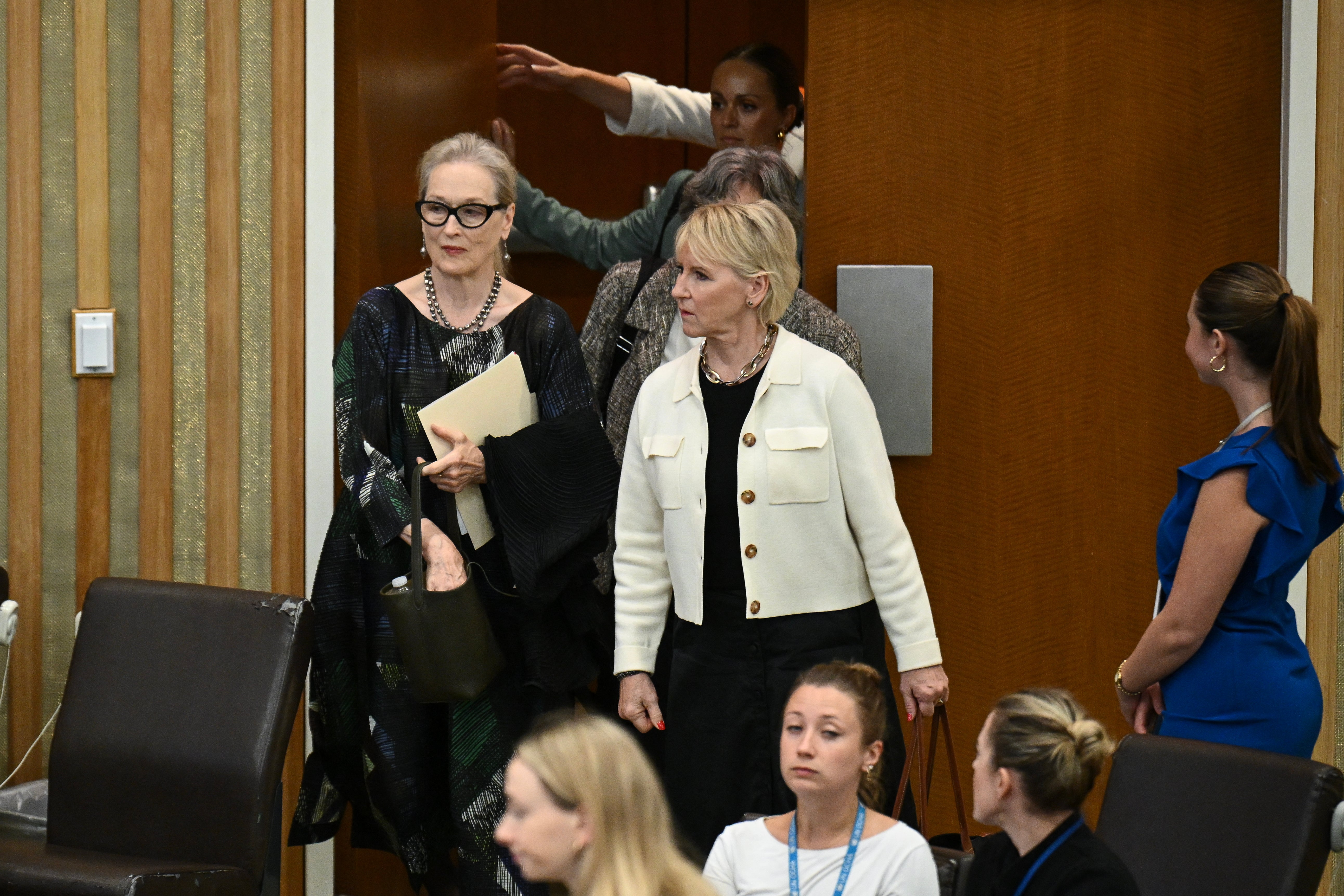Sept. 23 (UPI) -- The Missouri Supreme Court on Monday denied a request to halt Tuesday's pending execution of Marcellus Williams as prosecutors filed to vacate his conviction for the 1998 murder of a local news reporter.
Monday's denial by Missouri's high court and the governor's refusal to act all but ensures Williams execution by lethal injection will proceed despite the last-ditch effort to get a death sentence reversed to a life sentence with no parole as clemency.
In six years so far as the state's chief executive, Gov. Mike Parson has not granted clemency to someone facing execution. Eleven people have been executed in Missouri during that time.
"Mr. Williams has exhausted due process and every judicial avenue, including over 15 hearings attempting to argue his innocence and overturn his conviction," Parson, a Republican, said Monday afternoon in a release obtained by KOMU in Missouri.
"No jury nor court, including at the trial, appellate and Supreme Court levels, have ever found merit in Mr. Williams' innocence claims. At the end of the day, his guilty verdict and sentence of capital punishment were upheld. Nothing from the real facts of this case have led me to believe in Mr. Williams' innocence."
Tricia Rojo Bushnell, an attorney for Williams, described Missouri in a statement Monday as being poised to execute an innocent man, "an outcome that calls into question the legitimacy of the entire criminal justice system."
"Given everything we know about Marcellus Williams' case -- including the new revelations that the trial prosecutor removed at least one Black juror because of his race, and opposition to this execution from the victim's family and the sitting prosecuting attorney, the courts must step in to prevent this irreparable injustice," Bushnell said.
The court took up the case Monday morning ahead of Williams' scheduled execution on Tuesday night
Williams, 55, was convicted of killing St. Louis Post-Dispatch reporter Felicia "Lisha" Gayle, 42, who was stabbed to death 42 times with a butcher's knife from her kitchen during an attempted burglary in her University City gated community.
However, St. Louis County's top prosecutor filed a motion to have his conviction vacated in January, citing a lack of forensics linking him to the crime and "overwhelming evidence" of an unfair trial.
The January motion to vacate was initially approved by a county trial judge but was reversed on Sept. 12 after Missouri Attorney General Andrew Bailey contested it.
The case came before Missouri's Supreme Court after prosecuting Attorney Wesley Bell and attorneys representing Williams' filed a joint brief asking the court to send the case back to a lower court for a "more comprehensive hearing."
No forensic evidence had been able to tie Williams to the alleged crime nearly 30 years ago.
Yet despite this, Williams, a Black man, was convicted by an almost all-White jury in 2001 of Gayle's 1998 killing, according to Amnesty International, which is among the organizations that has called for Williams to receive leniency by Parson.
In the January motion, the Prosecuting Attorney's Office, which handled the 2001 trial against Williams, said DNA testing from the murder weapon could potentially exclude Williams as a suspect in Gayle's killing but it was later revealed the weapon had been mishandled, throwing a wrench in that case.
The effort to reverse the fortunes of Williams has pitted the local prosecutor against Missouri's Republican state Attorney General Andrew Bailey, who is up for re-election.
Bailey last month rejected a deal with prosecutors and Gayle's family to reverse Williams' sentence to first-degree murder and a resentencing to life in prison, instead appealing to the conservative Missouri Supreme Court comprised of five Republicans and two Democrats.
Other organizations, such as the National Association for the Advancement of Colored People and Council on American-Islamic Relations, joined Amnesty in calls for Parson to stop Williams' planned Tuesday execution.
The NAACP said executing Williams would "violate international law."
"Furthermore, a U.S. District Court in 2010 ordered that Marcellus Williams receive a new sentencing hearing, having found that his trial lawyer had failed to present any mitigating evidence of Marcellus Williams's violently abusive childhood," Amnesty wrote in a letter to Parson.
Gayle was in the shower on the morning of Aug. 11, 1998, when Williams allegedly broke into the gated community. Court documents said Gayle left her second-floor bathroom and was walking downstairs when she encountered her alleged killer on the landing. Her husband, Daniel Picus, found her body and called 911.
Among the evidence were bloody shoeprints and fingerprints, a knife sheath and hair from the suspected murderer that was collected from Gayle's shirt, hands and on the floor.
Four Missouri death row inmates in 40 years have been exonerated and since 1973, at least 200 American citizens have been spared from death row, a Missouri congresswoman cited the Death Penalty Information Center.
On Friday, Rep. Cori Bush, D-Miss., called on the governor to exonerate Williams "for a crime he didn't commit," she said.
Calling the death penalty "racist, flawed, inhumane," Bush, a co-sponsor of the Federal Death Penalty Prohibition Act, claimed Parson and the courts are allowing the execution to be carried out "despite credible evidence of Williams' innocence and mass scrutiny over the fairness of his trial."
U.S. executions in 2023 were largely concentrated in the South. Texas and Florida accounted for more than half of last year's more than executions across the United States.
The Death Penalty Information Center called 2022 "the year of the botched execution" in a year in which questions over human practice of the death penalty became a renewed national focus.
Records say that Williams had a troubled youth that involved death, sexual and physical abuse, drugs and stints in jail and was described by an attorney as "a caring and loving father" during the penalty phase of his murder trial.
His most recent stay of execution was ordered by then-Gov. Eric Greiten who had appointed a board of inquiry to look into the case until that decision was later reversed last year by Parson.
By doing so, Parson's actions "have violated Williams' constitutional rights and created an exceptionally urgent need for the Court's attention," Williams attorney had argued.
"St. Louis and I rise today to say that state-sanctioned violence has no place in a humane society," Bush added, "I am urging Governor Parson not to let another innocent man be murdered at the hands of the state. He must heed our call."
He originally had been sentenced to death for January 2015 and then August 2017. Both lethal injections were halted to conduct further DNA testing.
Williams had just started serving a 20-year prison sentence for robbing a downtown St. Louis donut shop at the time of his murder conviction.
A murder suspect was not immediately named by police and in May 1999 Gayle's family announced a $10,000 for information leading to an arrest. Williams became the main suspect after a girlfriend, Lara Asaro, and an inmate named Henry Cole claimed Williams was the culprit.















